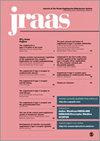Diagnosis of Hypoaldosteronism in Infancy
IF 4.1
4区 医学
Q3 PERIPHERAL VASCULAR DISEASE
Journal of the Renin-Angiotensin-Aldosterone System
Pub Date : 2021-07-23
DOI:10.5772/intechopen.97448
引用次数: 1
Abstract
Hypoaldosteronism is associated with either insufficient aldosterone production or lack of responsiveness to aldosterone and can be isolated or in the context of primary adrenal failure. Τhe severity of clinical manifestations is inversely correlated to age, with the neonatal period being the most vulnerable time for a patient to present with mineralocorticoid insufficiency. Salt-wasting forms of congenital adrenal hyperplasia (CAH), adrenal hypoplasia congenita (AHC), aldosterone synthase deficiency (ASD) and pseudohypoaldosteronism (PHA) are all causes of hypoaldosteronism in infancy. Affected infants present with salt wasting, failure to thrive and potentially fatal hyperkalemia and shock. Α blood sample for the essential hormonal investigations should be collected before any steroid treatment is given, in order to confirm aldosterone insufficiency and to determine the underlying cause. Renal ultrasonography and urine culture are also useful for exclusion of secondary causes of aldosterone resistance. Initial management requires treatment of electrolyte imbalances and restoration of intravascular fluid volume. In case of a salt-wasting crisis, affected infants are usually treated initially with both hydrocortisone and fludrocortisone, pending the results of investigations. Interpretation of the hormonal profile will guide further therapy and molecular analysis of candidate genes.婴儿低醛固酮增多症的诊断
醛固酮分泌减少症与醛固酮产生不足或对醛固酮缺乏反应性有关,可以是孤立的,也可以是原发性肾上腺功能衰竭。Τhe临床表现的严重程度与年龄呈负相关,新生儿期是患者出现矿皮质激素不足的最脆弱时期。先天性肾上腺皮质增生症(CAH)、先天性肾上腺皮质发育不全症(AHC)、醛固酮合成酶缺乏症(ASD)和假性醛固酮减少症(PHA)都是婴儿醛固酮减少症的病因。受影响的婴儿表现为盐消耗,不能茁壮成长和可能致命的高钾血症和休克。Α在给予任何类固醇治疗之前,应采集血液样本进行必要的激素调查,以确认醛固酮不足并确定潜在原因。肾脏超声检查和尿液培养也有助于排除醛固酮抵抗的继发原因。初始治疗需要治疗电解质失衡和恢复血管内液体容量。在盐消耗危机的情况下,受影响的婴儿通常在调查结果出来之前,首先用氢化可的松和氟化可的松治疗。激素谱的解释将指导进一步的治疗和候选基因的分子分析。
本文章由计算机程序翻译,如有差异,请以英文原文为准。
求助全文
约1分钟内获得全文
求助全文
来源期刊
CiteScore
6.20
自引率
0.00%
发文量
16
审稿时长
6-12 weeks
期刊介绍:
JRAAS is a peer-reviewed, open access journal, serving as a resource for biomedical professionals, primarily with an active interest in the renin-angiotensin-aldosterone system in humans and other mammals. It publishes original research and reviews on the normal and abnormal function of this system and its pharmacology and therapeutics, mostly in a cardiovascular context but including research in all areas where this system is present, including the brain, lungs and gastro-intestinal tract.

 求助内容:
求助内容: 应助结果提醒方式:
应助结果提醒方式:


